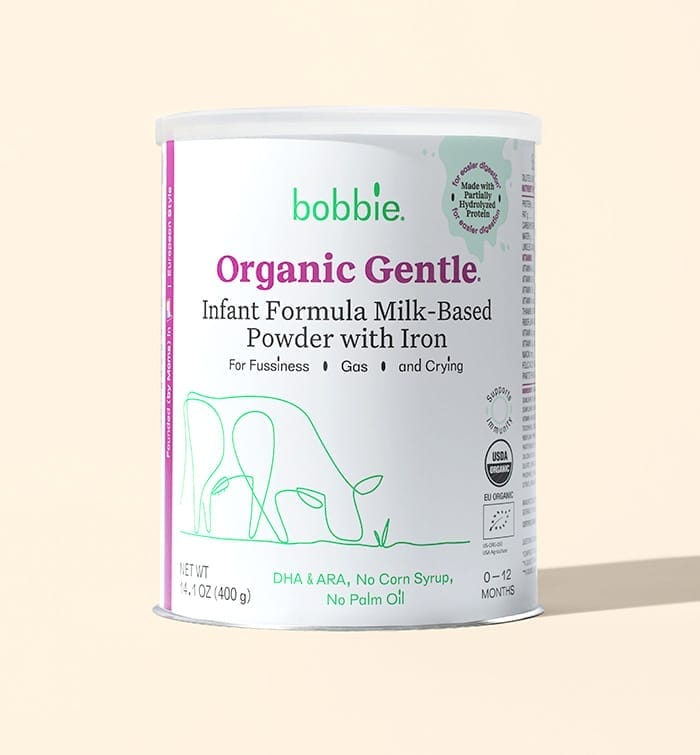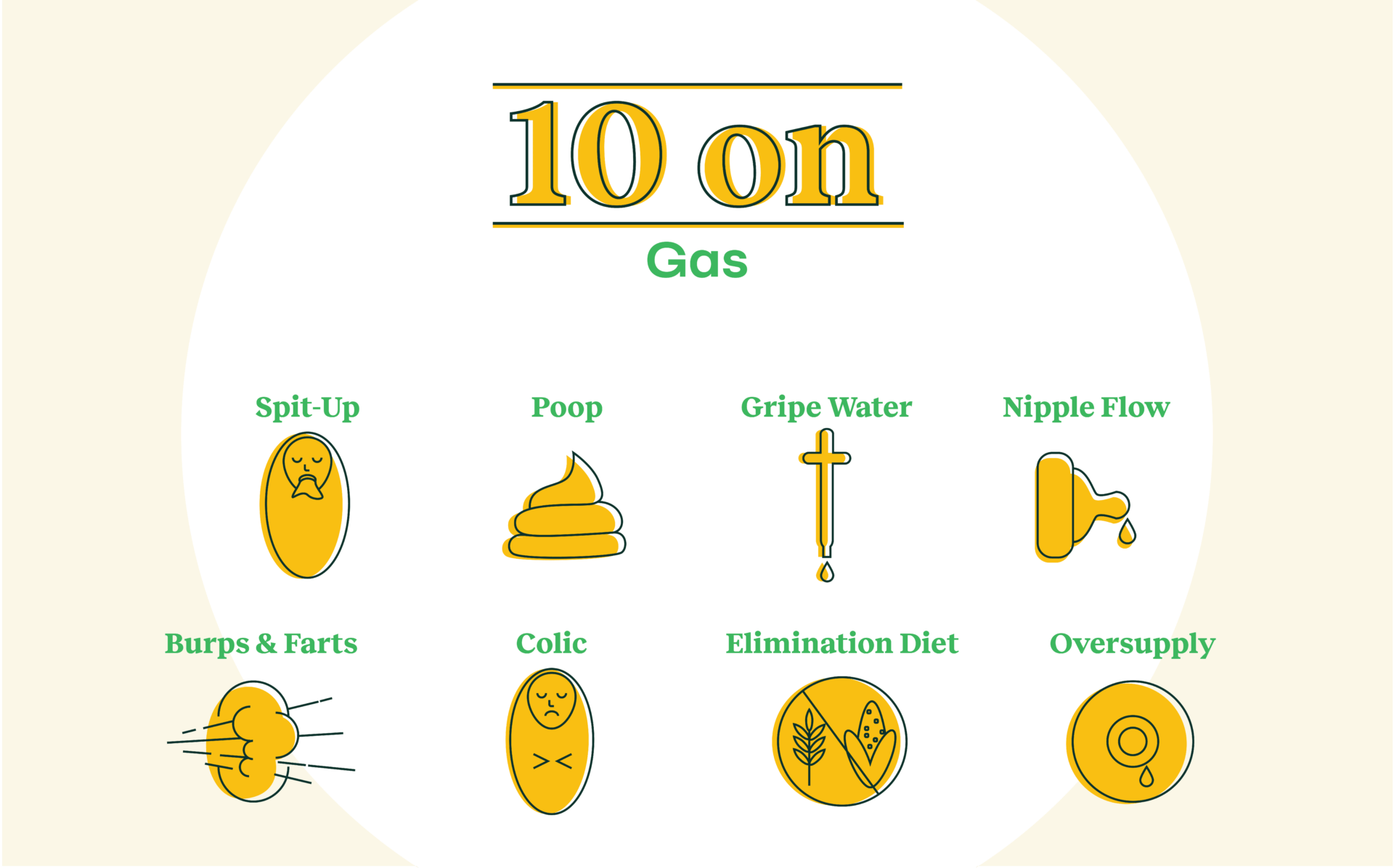We are proud to say that these posts are not sponsored. Our editorial team of Bobbie moms and writers personally select each featured product. If you buy something through our links, we may earn an affiliate commission, at no cost to you.
Have you been noticing that your baby is very gassy? You’re not alone. Sometimes it’s related to extra air being swallowed with bottle feedings. Other times, gassiness in babies is related to the type of formula they’re eating or a reaction to something that mom has eaten and is passing through her breast milk.
From spit-up to probiotics, we’re here to help you troubleshoot your baby’s discomfort.
Here are 10 things to know about baby and gas

Shop Bobbie Organic Gentle Infant Formula
Bobbie Organic Gentle is the only baby formula in the U.S. market that offers 100% partially-hydrolyzed whey protein and 100% lactose as the carbohydrate source. Our gentle baby formula is easy on sensitive tummies to help alleviate fussiness and gas. Learn more about Bobbie Gentle.
1-Spit-up is no big deal
So long as your baby is a “happy spitter,” spit-up is usually only a laundry issue. No need to re-feed immediately with baby formula or breastmilk right after the spit up— follow your baby’s hunger cues.
2-Poop and passing gas without pooping
As their digestion improves (around 8 weeks) infants usually poop once or twice a day, but it’s not unusual for them to go every few days. Passing gas without pooping is also perfectly normal, and most babies experience a little constipation at some point.
3-Gripe Water helps with gas issues
There’s not a lot of scientific evidence around this but lots of parents swear by gripe water to help gas issues. If your doctor is OK with it, try adding gas drops to your prepared formula to eliminate air bubbles and foam for a smoother texture that’s easier to digest.
4-Nipple flow can cause gas
Using a bottle with a flow that is too slow or fast for your infant can cause more gas. Feeding positions also impact the amount of air swallowed so keep your gassy baby semi-upright with their head higher than their stomach.
5-Burps to relieve gas
Try giving your baby a gentle pat on the back mid-feed and after feeding to prevent excess air building up in their bowels. Don’t stress if your baby doesn’t burp again immediately after every feed, try again after a few minutes. You can stop burping your baby between 4-6 months old.
6-Farts are very common for baby
Babies pass gas an average of 13-21 times a day. They have plenty of opportunities to swallow air: during feeds, sucking on a pacifier, and even crying.
7-Colic ends at around four months
Sucks, but hang in there! Usually your gassy baby’s discomfort peaks at about six to eight weeks of age, and by four months it will be a distant nightmare. Feeding on a schedule can help alleviate symptoms for some babies as it gives them time to better digest milk between feeds.
8-Elimination diet to relieve gas
A small number of breastfed babies react to certain foods and supplements in their mom’s diet, resulting in symptoms including excess gas. The most common culprits are dairy, soy, wheat, corn, eggs, and peanuts. Speak to your doctor before depriving yourself.
9-Oversupply is real
Yes, it’s real and can be kind of random; meaning it could only be a problem at certain times of the day. Try pumping an ounce or two before feeding to take the power out of your forceful letdown. Different positions can also prevent your baby from regurgitating their entire feed all over you both.
10-Probiotics in breast milk
Breast milk contains a very small amount of a large variety of probiotics. Different live culture blends can be found in some formula that can cause more gas initially so introduce these very gradually to allow your baby’s gut time to adjust.
Need more useful info from our 10:On series? Check out tips regarding baby allergies baby poop and more!

Shop Bobbie Organic Gentle Infant Formula
Bobbie Organic Gentle is the only baby formula in the U.S. market that offers 100% partially-hydrolyzed whey protein and 100% lactose as the carbohydrate source. Our gentle baby formula is easy on sensitive tummies to help alleviate fussiness and gas. Learn more about Bobbie Gentle.

